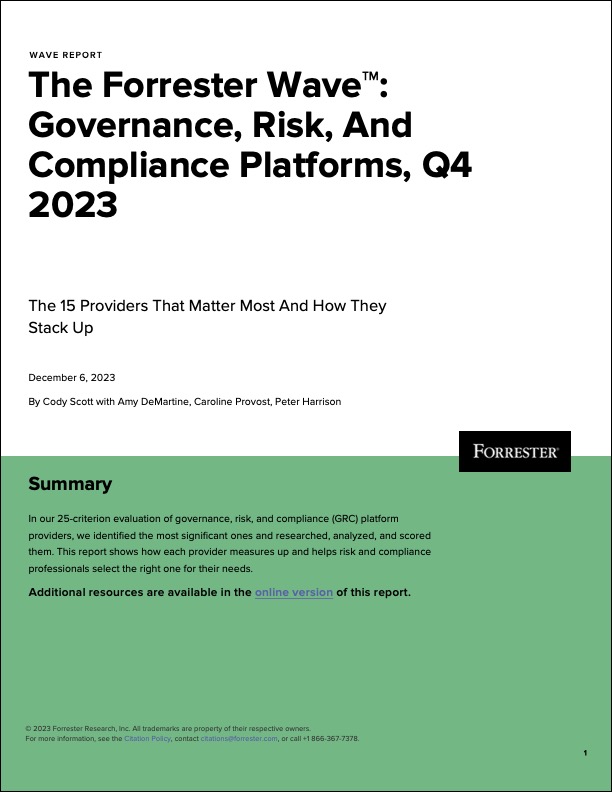Rilla - A Cloud-Native App Revolutionizing Banking in Bulgaria
Rilla Says Customers Can Open a Bank Account in Less Than 30 Clicks
Embedded finance or fintech has disrupted the financial sector. Its growth is likely to continue well into 2022 and beyond. According to KPMG's "Pulse of Fintech" report, global fintech investments in 2021 recorded $210 billion with 5,684 deals. Customers are discarding traditional branch banking or even conventional internet banking. Rather, they look for a one-stop shop for all their financial needs, and that's the reason digital-only banks are on a steady growth trajectory.
See Also: The State of Enterprise Mobile App Security 2023: Results Analysis
In 2021, a McKinsey study revealed that new generation financial institutions solve customer challenges by leveraging fintech solutions. They can offer convenient digital-only banking services entirely removing the need for physical interaction. And there will be increasingly more digital institutions, which will provide fully remote services.
Incubated in 2020, Rilla is a small but promising Bulgarian fintech. It is part of Management Financial Group, an NBFC with over 8,300 employees and associates and over 450 offices across Bulgaria, Ukraine, Romania, Poland, Spain and North Macedonia.
"The future of finance is intuitive. A digital, accessible and affordable solution is every customer's need. Rilla super app is a place where most often used financial services are available at no extra charge," says Sonya Bonova, CEO of Rilla.
Since November 2021, when the platform became available for download on Google Play and Apple App Store, it has got a little over 9,000 active customers. The aspiration is to achieve between 17K and 20K customers by the end of 2022.
"For a country like India or other Asian markets, this could be a very humble figure. However, Bulgaria's total population is just 7 million and not more than 2 million are digitally aware," Bonova says.
Genesis of Rilla
Rilla is evolving every day. It is adding more diverse services. Unlike a traditional bank, it does not have opening hours, paper-based documentation, or service fees. Its only aim is to give customers the freedom to manage their money with ease.
"We are not a bank and therefore our target customers are those who are looking for services beyond conventional banking. Before launching Rilla, we did a comprehensive market study on potential customers and found there were a whole lot of those who were underserved for a lot of their financial needs," Bonova says.
While there were many platforms, there were few that could be called true technology products that can help them execute all their financial needs. Normally, a customer relies on multiple companies to cater to different financial needs. Rilla's promise to its customers is compelling: They can open a bank account in less than 30 clicks.
"Once the customer has a bank account, the time taken to apply for credit and get it is less than a minute. Yes, it is linked to the credit scoring, which again is an automated process," Bonova adds.
Rilla's competition is with Revolut, which is an established player in the Bulgarian market. However, Revolut does not offer credit in Bulgaria.
"Agree that Revolut is bigger, and superior but we want to be one step ahead. Our entire focus is on a world-class, tech-enabled platform for easy access to financing for masses, and not classes," Bonova says.
Rilla does not have a single physical office. There is zero physical contact. Even to onboard a customer or to open a bank account, the process is end-to-end digital.
"Trust plays a crucial role for the customers to give us their personal data, identification documents, etc. In a short span, we have been able to prove it," Bonova says.
Tech Backbone Runs Rilla
Like most other new-age fintechs, Rilla is also cloud-native, and its super app is available for download on iOS, Android and Huawei platforms.
"Our entire infrastructure is hosted on Microsoft Azure cloud platform. The tech stack of Rilla is also developed using the Microsoft .NET framework. We are also extensively using Windows Web Services APIs," Bonova added.
Besides the cloud infrastructure from Microsoft and a core banking software, Rilla's tech team has custom-built a Middleware platform, which integrates its core banking and external service providers for services like identification, loans, credit products, etc.
"Not even a single element of our tech stack is on-premises. We are a 'born-in-the-cloud' fintech," Bonova says.
Since Rilla deals with sensitive personal data and money, it is on the radar of threat actors. It has established some best practices to safeguard the personally identifiable data of its customers and the network and applications.
The fintech also claims it scores high on trust. "Our entire platform is encrypted end-to-end with strict identity and access management strategy. We are quite aware of cyberattackers and fraudsters. It is a matter of trust, after all," Bonova says.
Will Rilla Venture Into New Markets?
Through continuous innovation, Rilla tries to differentiate from other fintech platforms and digital wallets. The super app has built functionality to pay electricity, gas, water and other utility bills.
"Rilla is all about convenience, mobility, agility and experience. Customers must enrol a number to receive their invoices, and they can conveniently pay all utility bills without having to visit different sites. It is made possible through API integration. It is a small but an effective hook that gives customers a reason to stay on Rilla," Bonova says. Some time ago, Rilla also launched free virtual debit cards.
Customer expectations are high, especially from financial institutions. The service should be quick, frictionless and trustworthy. Rilla's CTO and its team spend a lot of time on user experience (UX) R&D. Before working on any product, the technology team assesses the already available options.
"We develop comparison tables, and through that, we ensure that any of Rilla's services take lesser number of clicks and shorter time to complete a transaction."
In mid-to-long term, Rilla also plans to expand to other European markets, especially those where the parent company is already present.
"We are looking at two potential markets - Romania and Spain. Romania is not overpopulated with fintech apps, but it is a market that is three times bigger than Bulgaria," Bonova says.
On the product front, Rilla will launch its loyalty program. The best-rated app customers will be rewarded with attractive rewards to keep them engaged with the app for a longer term.
Banks in Bulgaria charge a high fee for services. Whereas, Rilla offers most services free besides credit. "Even an account opening service on Rilla is free for a customer. There is no monthly maintenance fee. This helps us attract more customers. To create stickiness, we are planning to even offer a 3% to 5% interest on funds that clients hold in their accounts on the Rilla app."






















